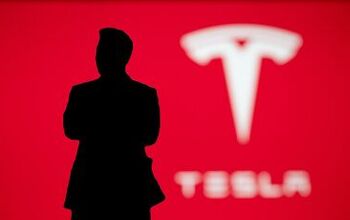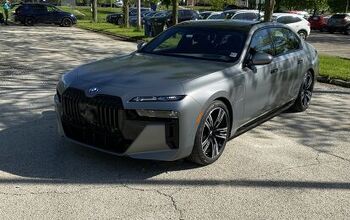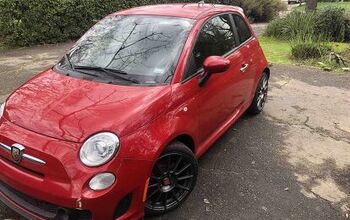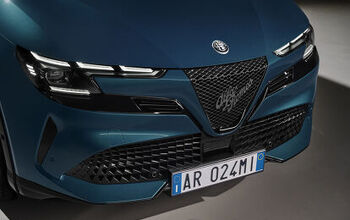Surprise: Foreigners Get The Upper Hand In China

Conventional wisdom says that the Chinese will suck all the know-how out of their foreign joint venture partners, and once they are through with them, they’ll discard them like Dracula a bloodless virgin. As a thank you, the Chinese will flood foreign countries with cheap Chinese cars. The trouble with conventional wisdom is that it is rarely true, or wise. Actually, the Chinese are now worried that the foreigners amass too much power. “Foreign car producers have begun to take more control of their joint ventures in China, sidelining their Chinese counterparts from business partners to factory providers,” China Daily writes today. China Daily is owned by the Chinese government.
When I came here in 2004, executives of German car companies cried into their third beer at Schindler’s Tankstelle or Paulaner Bräuhaus in Beijing: “In eight years, they’ll throw us all out.” Seven years later, nobody is thrown out. More joint ventures are forged, lately with PSA and Fiat. The contract between Volkswagen and SAIC, signed in October 1984 in Beijing’s Great Hall of The People with Chinese Premier Zhao Ziyang and German Chancellor Helmut Kohl watching, was for 25 years. It did not come due until 2010. Nevertheless, in 2002, the two parties already had quietly extended the contract for another 20 years, which now lasts until 2030. Nobody is going anywhere.
Last week, when we reported about Volkswagen extending its 40 percent holdings in the joint venture with FAW (founded 1990) to 49 percent, China Daily was complaining that the foreigners are flexing their muscles. They cited Zeng Zhiling, director of JD Power Asia Pacific Forecasting who said that “Chinese automakers are still in the weaker position at their joint ventures.”
According to Chinese rules, you need to form a joint venture for car manufacturing. Two crucial areas of the business do not need a joint venture: Parts manufacturing and the selling of cars. If I would be crazy enough, I could buy 100 percent of a Chinese parts manufacturer or a Chinese car dealership tomorrow. Being a Wholly Foreign Owned Enterprise (WFOE), I can transfer money in, and most importantly out of China at will. Once Chinese taxes are paid, profits can be sent out of the country. I don’t have to share my IP with nobody.
Foreign carmakers have built their own parts in their own Chinese plants for a long time. The whole Delphi operation was GM’s 100 percent owned Chinese operation. Too bad that they lost most of Delphi in bankruptcy and had to sell the morsels to the Chinese. Ford’s Visteon is doing great in China, France’s Valeo is doing great in China, Toyota’s Denso is doing great in China. Many foreign car companies operate 100 percent owned parts makers in China and sell the parts to their own JVs.
Now, foreign carmakers are tightening the grip on the other side of the Chinese car business: Car wholesale and retail.
According to China Daily, “FAW-VW Automobile Co plans to establish its own logistic and sales networks, a key indicator of a potential takeover. The company has already started to reassess contracts with secondary dealers in more than 30 cities.”
The paper heard that “Mercedes-Benz’s Beijing unit and Mercedes-Benz China are also rumored to have started a restructuring of their sales channels. Industry insiders believe that Daimler AG has played a key role in the process.”
Daimler has always been big on controlling the retail channel. Volkswagen has been quietly buying up its wholesalers in many key markets and owns several large dealer groups in Europe. When Volkswagen bought Porsche Holding in Salzburg, they bought one of the largest car dealer groups in Europe. The PHS network covers all of Europe and reaches all the way to China. Last year, PHS alone moved 565,000 vehicles worth €12.78 billion. That’s more than what Russia’s Avotovaz or China’s BYD produced last year.
Carmakers always feared the purchasing power of large dealer chains. Before they get too big and too powerful, automakers rather sell their own cars and control the value chain from making parts to the final crusher. Most of the money is not made making and selling cars, but financing them, insuring them, fixing them, providing parts for them, servicing them, reselling them as used cars. In Europe, China, and many other countries, no law is keeping automakers from entering that field. The foreigners have always controlled the technology. Once they control the parts supply and the retail end, assembling the cars turns into a technicality.

Bertel Schmitt comes back to journalism after taking a 35 year break in advertising and marketing. He ran and owned advertising agencies in Duesseldorf, Germany, and New York City. Volkswagen A.G. was Bertel's most important corporate account. Schmitt's advertising and marketing career touched many corners of the industry with a special focus on automotive products and services. Since 2004, he lives in Japan and China with his wife <a href="http://www.tomokoandbertel.com"> Tomoko </a>. Bertel Schmitt is a founding board member of the <a href="http://www.offshoresuperseries.com"> Offshore Super Series </a>, an American offshore powerboat racing organization. He is co-owner of the racing team Typhoon.
More by Bertel Schmitt
Latest Car Reviews
Read moreLatest Product Reviews
Read moreRecent Comments
- Lou_BC Well, I'd be impressed if this was in a ZR2. LOL
- Lou_BC This is my shocked face 😲 Hope formatting doesn't fook this up LOL
- Lou_BC Junior? Would that be a Beta Romeo?
- Lou_BC Gotta fix that formatting problem. What a pile of bullsh!t. Are longer posts costing TTAC money? FOOK
- Lou_BC 1.Honda: 6,334,825 vehicles potentially affected2.Ford: 6,152,6143.Kia America: 3,110,4474.Chrysler: 2,732,3985.General Motors: 2,021,0336.Nissan North America: 1,804,4437.Mercedes-Benz USA: 478,1738.Volkswagen Group of America: 453,7639.BMW of North America: 340,24910.Daimler Trucks North America: 261,959


































Comments
Join the conversation
What impact will the China govt's direction to the joint ventures to start developing their own branded vehicles will have on the joint ventures and/or the automotive landscape. Joint ventures require 75-90% domestic content for both parts and tooling. Not sure what determines the range, but it's there. It would be an interesting situation if the US govt required that same level of content and leveling the playing field :)
How long did it take US and European based auto makers to develop the know how required to build modern vehicles? How long did it take the Japanese and then the Koreans to acquire similar skills? China's auto making partners are getting multiple decades of know how as a condition of market entry for these too powerful foreign companies. Yeah, the poor Chinese partners are really getting the short end of the stick.